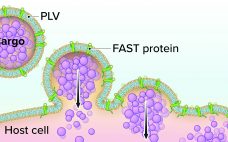At the end of 2018, BPI published its first eBook about mRNA drug products — and quite a lot has happened since then! Our initial report highlighted companies working on mRNA therapeutics for cystic fibrosis, heart disease, and cancer, as well as vaccines. The latter approach took off in 2020 with the advent of SARS-CoV-2 and the COVID-19 pandemic, and in a stunningly short time, the biopharmaceutical industry has learned much about manufacture, formulation, product design, and distribution of mRNA…
Author Archives: Brian Gazaille
Preparing for Process Improvements: Discussions of the Cell Therapy Industry’s Supply Chain, Automation, and Control Needs
As editors, we are fortunate to have the opportunity to listen to biopharmaceutical developers and innovators discuss the intricacies of their work. Typically, we find that the best discussions come from asking two fundamental questions: What need did you observe in the industry that drove your work, and what technologies would help you do your job better? Over the past five years or so, the answers have shifted. Cell and gene therapy (CGT) innovators are focusing on increasingly complex diseases…
March 2021: From the Editor
In my short time as BPI’s resident novice, I have been impressed with this industry’s interdisciplinarity and collaborative spirit. Executives tell me that biopharmaceutical companies have not always been so multifaceted in their expertise or so willing to forge partnerships across organizations and over the industry–academia divide. I am lucky to have started working with you when I did late in 2019. That is not to regard the biopharmaceutical industry with rose-tinted glasses. Many elements of biomanufacturing remain closely guarded…
Exciting Starts for New Players and Platforms: Nucleic-Acid Vaccines Prepare for Their Commercial Debut
Although vaccine platforms based on messenger RNA (mRNA) are enjoying the limelight in the wake of emergency authorizations of products from Pfizer–BioNTech and Moderna, DNA vaccines are poised to make their own commercial debuts soon. The World Health Organization (WHO) reports that six of the 48 candidate vaccines against SARS-CoV-2 that remain in clinical trials are DNA-based products, as are 14 others in preclinical study (1). I spoke with Hong Jiang (cofounder and chief operating officer of Aegis Life, Inc.)…
Cold-Chain Validation: Emerging Vaccines for COVID-19 and Beyond Require More Extensive Evaluation
In the wake of fast-track approvals for Pfizer’s and Moderna’s respective SARS-CoV-2 vaccines, now begins the largest immunization campaign in world history. Its success will depend not only on the products’ safety and efficacy, but also on several mass-distribution programs requiring significant cold-chain infrastructure. The public has become acutely aware of the Pfizer vaccine’s demanding cryostorage specifications, generating considerable anxiety about how mass distribution will happen. Behind the scenes, however, cold-chain engineering companies such as Modality Solutions have worked alongside…
eBook: Formulation, Fill–Finish — Biopharmaceutical Drug-Product Trends and Technologies
As with many other aspects of biopharmaceutical development, evolving technologies are transforming drug-product development and manufacturing. In a November 2020 report on the Informa Connect “Drug Delivery Partnerships” meeting, BPI senior technical editor Cheryl Scott reviewed how new delivery-device technologies are bringing together companies with disparate expertise to serve patients with chronic conditions better than ever before. The ever-increasing capabilities of electronics and information technology (IT) not only are enabling development of “smart” delivery devices, but also improving the potential…
eBook: Biomarkers — Improving Clinical Studies to Enhance Commercial Success for Biologics
The biopharmaceutical industry continues to invest heavily in technologies for identification of predictive biomarkers. Drug developers want not only to find quantitative evidence that their therapies will work as designed, but also to anticipate which patient populations will respond positively to those regimens. Doing that could streamline clinical trials, accelerate approvals, and ultimately improve patient outcomes. Advances in next-generation sequencing and increases in computational capability now are facilitating biomarker inquiries, especially in the realm of immunooncology. However, predictive biomarkers remain…
November–December 2020:
From the Editors
As 2020 draws to a close, we can’t help looking back at this year in which the biopharmaceutical industry has received more attention than ever before — scientifically, politically, and otherwise. We editors always have been conscious of (and pretty good at) separating our work and home lives. As many of you have learned this year, that’s an important part of working from home, which we’ve been doing for over a decade. But in recent months, reading the news and…
Plant-Cell Cultures and Cell Lines for Recombinant Protein Expression
Cell cultures derived from mammalian and bacterial cell lines are the conventional production systems in bioprocessing. But they also have their limitations. Media for mammalian cultures in particular are notoriously expensive, and traditional cell cultures can be highly sensitive to growing conditions. During the late 1980s and into the 1990s, plants and plant-derived cell cultures were introduced as alternative cell-culture systems (1, 2). Although transgenic plants (genetically modified) once looked promising in the early 2000s, the cost and manufacturing complexity…
Developing Advanced-Therapy Products Through Global CDMOs
Tremendous growth in the cell and gene therapy (CGT) industry is driving unprecedented demand for manufacturing services. To be sure, advanced-therapy developers increasingly are choosing to install in-house capabilities. Doing so can offer companies greater control of their processes, timelines, and budgets than they might have when outsourcing products (1). But industry experts agree that contract development and manufacturing organizations (CDMOs) will remain integral to CGT manufacturing and commercialization (1, 2), especially with veteran contract partners scrambling to acquire CGT…










